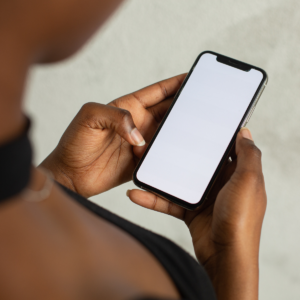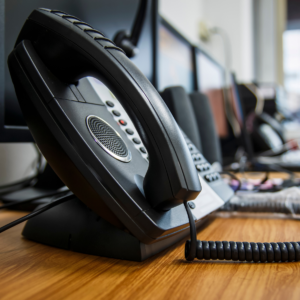Phone Interview Tips
Job interviews are an essential part of the hiring process and telephone interviews have become a popular method of interviewing candidates for job positions.
They provide a platform for the employer to assess a candidate’s suitability for the role, while also allowing the candidate to gain insight into the company culture, values and expectations. In recent years, technology has revolutionized the interview process, with phone and video interviews becoming increasingly popular.
It is a convenient and cost-effective way for employers to assess candidates without the need for physical meetings. However, just like traditional face-to-face interviews, phone interviews require preparation and adequate knowledge about the interview process.
In this article, we will cover everything you need to know about telephone interviews, including how to prepare for one, what to expect during the phone interview, and how to make a good impression.
Communication
 In a telephone interview, communication is purely verbal. This means that the interviewer can only assess the candidate’s tone of voice, clarity, and concision. On the other hand, video or face-to-face interviews allow the interviewer to assess the candidate’s non-verbal communication, including facial expressions, body language, and eye contact. Non-verbal communication can often reveal a lot about a person, and it can be difficult to gauge this in a telephone interview.
In a telephone interview, communication is purely verbal. This means that the interviewer can only assess the candidate’s tone of voice, clarity, and concision. On the other hand, video or face-to-face interviews allow the interviewer to assess the candidate’s non-verbal communication, including facial expressions, body language, and eye contact. Non-verbal communication can often reveal a lot about a person, and it can be difficult to gauge this in a telephone interview.
Preparation
When preparing for a telephone interview, it is important to focus on your verbal communication skills. You should practice speaking clearly, concisely, and confidently. It is also important to ensure that you are in a quiet and distraction-free environment. In contrast, video or face-to-face interviews require additional preparation, such as dressing professionally and considering your appearance. You should also be aware of your body language, as this can have a significant impact on your overall impression.
Technology
In a telephone interview, the technology used is relatively simple. You only need access to a phone and a quiet environment. However, video or face-to-face interviews require more advanced technology, such as a webcam, microphone, and stable internet connection. Technical issues such as poor audio or video quality can also be a challenge in video interviews.
Engagement
Telephone interviews can sometimes feel impersonal, as there is no visual engagement between the interviewer and the candidate. This can make it difficult to build a rapport and establish a connection. In contrast, video or face-to-face interviews allow for greater engagement, as you can see each other and interact more naturally.
Time management
Finally, time management is a crucial factor in all types of interviews. However, it can be more challenging to manage time in a telephone interview, as you do not have the visual cues to help you gauge the interviewer’s interest or engagement. It is important to keep your responses concise and focused to ensure that you cover all the necessary points within the allotted time.
In conclusion, while telephone interviews and video or face-to-face interviews share some similarities, there are also significant differences to consider. Depending on the role and the company, one format may be more appropriate than the other. It is important to prepare thoroughly for any interview, regardless of the format, to ensure that you present yourself in the best possible light.
How to Prepare for a Telephone Interview
 Preparing for a telephone interview is similar to preparing for an in-person interview. You need to do your research about the company, the job position, and the interviewer. Here are some essential steps to take before your telephone interview:
Preparing for a telephone interview is similar to preparing for an in-person interview. You need to do your research about the company, the job position, and the interviewer. Here are some essential steps to take before your telephone interview:
- Research the Company
It’s essential to research the company you’re interviewing with to get an idea of its values, culture, and mission statement. This knowledge will help you tailor your responses to align with the company’s objectives. Start by visiting the company’s website and read about their history, mission statement, and current projects. You can also check out their social media pages to get a feel of their company culture and values.
- Review the Job Description
Ensure that you understand the job description and responsibilities thoroughly. Go through the job description and highlight the essential skills and qualifications required for the position. This will help you prepare adequately and respond to questions related to your qualifications.
- Prepare Your Answers
Most telephone interviews follow a specific pattern of questions, such as questions about your qualifications, work experience, strengths, and weaknesses. Prepare your answers to these questions and rehearse them to help you sound confident and articulate during the interview. You can also prepare questions to ask the interviewer to show your interest in the company and position.
- Practice with a Friend
Practice makes perfect. It’s always good to practice your responses with a friend or family member before the interview. You can do a mock telephone interview and have them give you feedback on your responses and delivery.
- Get Organized
Ensure that you have a quiet and comfortable space for the interview. It’s also important to have your resume, job description, and any notes you’ve made within easy reach. Make sure your phone is fully charged or plugged into a power source, and test your phone’s sound quality to ensure that you can hear the interviewer clearly.
What to Expect in a Telephone Interview
 A telephone interview typically lasts between 20-30 minutes and is used to screen candidates before inviting them for a face-to-face interview. Here are some things to expect during a telephone interview:
A telephone interview typically lasts between 20-30 minutes and is used to screen candidates before inviting them for a face-to-face interview. Here are some things to expect during a telephone interview:
-
Introduction
The interviewer will introduce themselves and explain the purpose of the interview. They may also give you an overview of the company and the position you applied for.
-
Questions About Your Qualifications
The interviewer will ask you questions related to your qualifications, work experience, and education. Ensure that you have your resume and any notes you’ve made about your qualifications within easy reach. Answer the questions confidently and be specific in your responses.
-
Questions About Your Availability
The interviewer may ask you about your availability to work and if you can start immediately if you’re offered the job.
-
Behavioral Questions
The interviewer may ask you behavioral questions to assess your problem-solving skills, decision-making abilities, and ability to work under pressure. Be prepared to give examples of how you’ve handled similar situations in the past.
-
Questions About the Company
The interviewer may ask you questions about the company and its values. This is to assess if you’re a good fit for the company culture.
-
Questions About Your Salary Expectations
The interviewer may ask you about your salary expectations to see if it’s within the company’s budget. Be prepared to give a range rather than a specific figure.
-
Wrap-Up
Towards the end of the telephone interview, the interviewer may ask if you have any questions or if there is anything else you would like to share. Take this opportunity to ask any questions you may have about the position or the company. You can also share any additional information that you feel would be relevant to the position or your qualifications.
After the interview, be sure to send a thank-you email to the interviewer to show your appreciation for the opportunity to interview with the company.
Tips for Making a Good Impression in a Telephone Interview
-
Speak Clearly and Enunciate
 Since the interviewer cannot see you, it’s important to speak clearly and enunciate your words. This will help the interviewer understand you better and ensure that you come across as professional.
Since the interviewer cannot see you, it’s important to speak clearly and enunciate your words. This will help the interviewer understand you better and ensure that you come across as professional.
-
Smile
Even though the interviewer cannot see you, smiling during the telephone interview can help you sound more friendly and approachable.
-
Be Engaging
Since the interviewer cannot see you, it’s important to be engaging during the telephone interview. This can be done by asking questions, being enthusiastic, and expressing interest in the position and the company.
-
Stay Focused
During the telephone interview, ensure that you’re focused and engaged. Avoid any distractions, such as checking your email or social media, and give the interviewer your full attention.
-
Use Professional Language
When speaking with the interviewer, use professional language and avoid using slang or informal language. This will help you come across as professional and knowledgeable.
How can I do well in a phone interview?
 A phone interview is often used as the first step in the hiring process, and it’s important to make a good impression. Here are some tips to help you do well in a phone interview:
A phone interview is often used as the first step in the hiring process, and it’s important to make a good impression. Here are some tips to help you do well in a phone interview:
- Prepare in advance – research the company and the job requirements, and practice your responses to common interview questions.
- Choose a quiet and distraction-free location to take the call.
- Speak clearly and avoid using filler words like “um” or “like”.
- Smile while you’re talking – it can help convey a positive attitude and energy.
- Take notes during the interview and ask thoughtful questions at the end.
What should I say in a phone interview?
In a phone interview, the interviewer will ask questions that are aimed at evaluating your experience, skills, and qualifications for the job. They may also ask about your goals, motivations, and expectations for the role. Here are some tips to help you answer these questions effectively:
- Be concise and to the point – keep your answers focused and relevant to the question.
- Use examples from your past experiences to illustrate your skills and abilities.
- Emphasize your strengths and how they align with the job requirements.
- Be honest about your weaknesses and how you’re working to improve them.
- End the interview by expressing your interest in the job and thanking the interviewer for their time.
Telephone interview dos and don’ts
 To make a good impression during a phone interview, there are some important dos and don’ts to keep in mind. Here are some of them:
To make a good impression during a phone interview, there are some important dos and don’ts to keep in mind. Here are some of them:
Dos:
- Do prepare in advance by researching the company and the job requirements.
- Do choose a quiet and distraction-free location to take the call.
- Do speak clearly and confidently, and avoid using filler words like “um” or “like”.
- Do take notes during the interview and ask thoughtful questions at the end.
- Do express your interest in the job and thank the interviewer for their time.
Don’ts:
- Don’t be late for the call – be punctual and ready to start on time.
- Don’t multitask or do other activities while on the call.
- Don’t use inappropriate language or speak negatively about previous employers.
- Don’t interrupt the interviewer or talk over them.
- Don’t forget to follow up after the interview with a thank-you note or email.
Telephone interviews are an effective way for employers to screen candidates before inviting them for a face-to-face interview.
It’s essential to prepare adequately for a telephone interview by researching the company, reviewing the job description, and preparing your answers. During the telephone interview, be sure to speak clearly, engage with the interviewer, and stay focused.
By following these tips, you can make a good impression and increase your chances of landing the job.